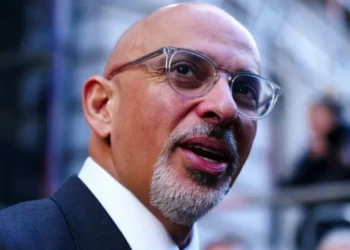In a landmark moment for UK-India relations, Prime Minister Keir Starmer and Indian Prime Minister Narendra Modi signed a long-awaited free trade agreement on Thursday, describing the day as “historic.” The agreement, which has been under negotiation for nearly three and a half years, was formalised at Chequers, the British Prime Minister’s country residence in Buckinghamshire.
Both leaders hailed the accord as a “step-change” in bilateral ties, projecting that the deal could generate £4.8 billion in annual economic gains for the UK and bring in £6 billion in fresh investments from both British and Indian businesses. Prime Minister Modi described the two countries as “natural partners.”
The agreement significantly reduces average tariffs on UK exports to India from 15% to just 3%. Among the key provisions, whisky tariffs, historically a contentious issue, will be halved at first, with plans for further reductions over time. The pact, however, still requires ratification by both the British and Indian parliaments, a process expected to take several months.
Despite the celebratory tone, the agreement has not been without criticism. Civil society groups and advocacy organisations have questioned its adequacy in addressing labour protections, climate commitments, and the rights of marginalised communities.
Tom Wills, director of the Trade Justice Movement, expressed concerns that the deal “fails to include binding protections for labour rights, environmental standards or public health.” Similarly, the London Mining Network criticised the agreement for “lack[ing] robust climate safeguards,” particularly concerning coal extraction activities in India.

Bilateral Talks Extend Beyond Trade
While the free trade deal grabbed headlines, other critical issues featured in the bilateral discussions between the two leaders. Talks are ongoing around a potential bilateral investment treaty aimed at providing benefits to the UK’s financial and legal sectors. However, officials have signalled scepticism about its near-term prospects.
A major sticking point remains the UK’s proposed carbon border tax, a policy India has publicly opposed. Negotiations between both governments continue on this front, with climate diplomacy emerging as a parallel track to the trade dialogue.
Modi’s visit to the UK was marked by multiple engagements, including meetings with Starmer and King Charles. He was also scheduled to attend a business reception later this evening.
One particularly sensitive topic raised during the bilateral meeting was the prolonged detention of Jagtar Singh Johal, a Sikh activist from Dumbarton, Scotland. Johal has been detained in India since 2017 after being arrested on terror-related charges while visiting for his wedding. Although one of the nine cases against him has been dropped this year, he remains imprisoned. Johal has claimed he was tortured in the early stages of his incarceration and coerced into making a confession.
Downing Street confirmed that Starmer raised Johal’s case during his meeting with Modi. Ian Murray, the Scotland Secretary, reaffirmed the government’s commitment to resolving the issue, stating: “The government are doing all we possibly can to get this resolved.” He referenced a recent diplomatic engagement between the UK foreign secretary and his Indian counterpart earlier this June.
Gurpreet Singh Johal, Jagtar’s brother, said ahead of Modi’s visit: “I’m putting my faith in the prime minister to get this done and bring Jagtar home.” He criticised the previous administration’s handling of the case, adding: “I’ve grown very tired of fine words and weak excuses for a lack of action, while my brother grows old in prison.”
While the free trade agreement is being celebrated as a new chapter in UK-India relations, its broader implications, both economic and political, will continue to unfold in the months ahead as the deal awaits ratification and scrutiny.
READ ALSO: Xi Urges EU To Properly Handle Differences























